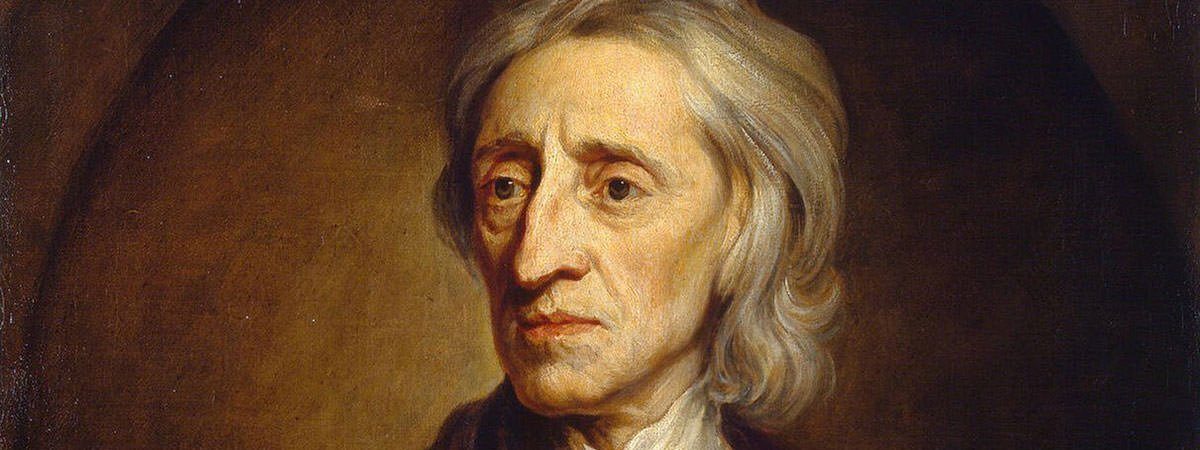John Locke was an English philosopher who is widely regarded as one of the greatest western philosophers of all time. Locke was initially home schooled by his father. He joined Westminster School in London at the age of 14 and after that he studied at Christ Church college in Oxford University. Though renowned for philosophy, Locke was also a physician and he served as personal physician of the influential politician Lord Anthony Ashley Cooper. Lord Ashley had a great influence on Locke as well as his career. John Locke lived in a time of great political turmoil and he had to leave England due to his alleged involvement in the Rye House Plot to kill the King. After his return from exile, Locke published a series of works which had a profound and long lasting impact on western thought. Among other things, his writings are considered by some to be the basis of the American Declaration of Independence. Know more about the family, life, education, career, works and death of John Locke through these 10 interesting facts.
#1 HIS FATHER SERVED IN THE ENGLISH CIVIL WAR
John Locke was born on 29th August 1632 in Wrington, a small village in Somerset in south-western England. He was the eldest child of John Locke Sr. and his wife Agnes Keene. His parents had married two years earlier in 1630. They had another son, Thomas Locke, in August of 1637. John Locke Sr. was a county attorney and clerk to the Justice of the Peace. He also served with the Parliamentary forces in the English Civil War (1642–1651). John Locke’s letters show respect and affection for his father. His father was stern with him when he was young but as he grew up they had a more closer relationship. Little is known about John’s mother Agnes Keene except that she was 10 years older than her husband and a very pious woman. He spoke affectionately of her in his letters. The Locke family was well-to-do, but not of particularly high social or economic standing.

#2 HE GRADUATED FROM THE UNIVERSITY OF OXFORD
John Locke was home schooled by his father for the first 14 years. In 1647, at the age of 15, he was sent to the prestigious Westminster School in London. There, apart from other things, he studied Latin, Greek, Hebrew and Arabic in order to read the books written in those languages. In 1652, Locke was elected for a scholarship to Christ Church, Oxford and he joined the college at the age of 20. He had little appreciation for the traditional philosophy he learned there as he found the works of modern philosophers, such as Rene Descartes, more interesting. John Locke graduated with a bachelor’s degree in February 1656 and a master’s degree in June 1658. During his early years at Oxford, Locke lost his mother. His father died in 1661 and his only brother, Thomas, died two years later. Thus Locke was left without a family by the time he was in his early thirties.

#3 JOHN LOCKE STUDIED MEDICINE EXTENSIVELY AND SERVED AS A PHYSICIAN
John Locke remained in Oxford from 1652 until 1667. His time there, especially his later years, were devoted to the study of medicine and science (called natural philosophy then). Locke read widely in these fields; and worked with such noted scientists and thinkers as Robert Boyle, Thomas Willis, Robert Hooke and Richard Lower. In 1666, he met Lord Anthony Ashley Cooper, who had come to Oxford seeking treatment for a liver infection. He was so impressed with Locke that he asked him to become his personal physician. In 1667, John Locke moved into Lord Ashley’s home at Exeter House in London to serve as his personal physician. In this capacity, Locke was involved in a remarkable operation when Ashley’s liver infection became life threatening. A silver tube was inserted into the tumour on Ashley’s liver, which allowed it to be drained on a regular basis and relieved him of much pain. Lord Ashley survived and prospered, crediting Locke with saving his life.
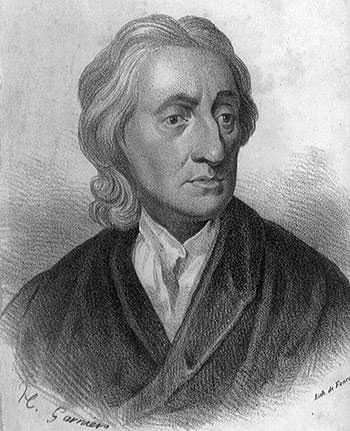
#4 HE WAS GREATLY INFLUENCED BY LORD ASHLEY AND THOMAS SYDENHAM
Lord Anthony Ashley Cooper was one of the most powerful figures in England in the first two decades after the Restoration of the English monarchy in 1660. He became the 1st Earl of Shaftesbury in 1672. Ashley, as a founder of the Whig movement, exerted great influence on Locke’s political ideas. Apart from being his personal physician, Locke assisted Ashley in public business, political affairs etc. Through the patronage of Ashley, Locke held a series of governmental posts. He served as Secretary of the Board of Trade and Plantations; and Secretary to the Lords Proprietor of Carolina. Also, while in London, Locke established a close working relationship with Thomas Sydenham, who later became one the most famous physicians of the age. Sydenham also exerted a considerable influence on Locke. In 1668, Locke became a member of the recently founded Royal Society. He obtained a bachelor of medicine degree in February 1675.
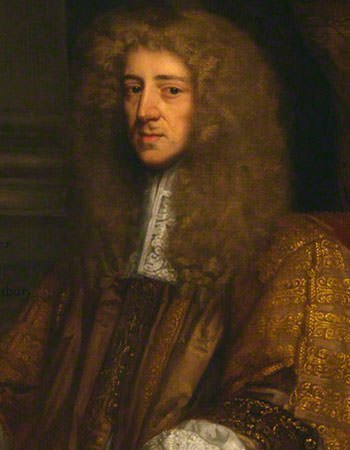
#5 LOCKE HAD TO FLEE ENGLAND DUE TO THE RYE HOUSE PLOT
In 1672, Ashley was appointed lord chancellor of England but he soon fell out of favour of King Charles II. This led to both Ashley and Locke being in real danger. Thus Locke travelled to France in 1675 and he stayed there for four years. By the time he returned to England, Ashley had been released from imprisonment and restored to favour, though only for a brief period. John Locke was a Protestant. He and Lord Ashley openly opposed the succession of the Roman Catholic brother of Charles II, the future James II. In 1683, the Rye House Plot was uncovered. It was a plan to assassinate King Charles II and his brother James. John Locke was under strong suspicion of involvement in the Rye House Plot and thus he had to flee to the Netherlands the same year. Whether Locke was involved in the plot is debated. In 1668, the Glorious Revolution resulted in the overthrow of King James II. John Locke returned to England the following year after more than five years in exile.
#6 JOHN LOCKE IS CONSIDERED ONE OF THE GREATEST WESTERN PHILOSOPHERS
Most of John Locke’s best known works were published after his return from exile. In 1689, three important works by Locke were published in quick succession: An Essay Concerning Human Understanding, which examines the human mind and is regarded as one of the most influential works in philosophy; Two Treatises of Government, his most important political work which has notably influenced political thought since its publication; and A Letter Concerning Toleration, which put forward a strong reasoning in favour of religious tolerance. Other major works of John Locke include Some Thoughts Concerning Education (1693), which remained the most important philosophical work on education in England for over a century; and Reasonableness of Christianity (1695), which argued that it is reasonable to be a Christian. The works of John Locke hugely effected subsequent western thought and his influence remains even three centuries after his death.
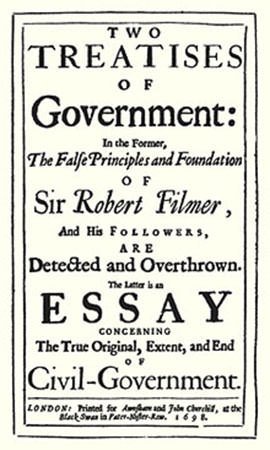
#7 HE HAD A CLOSE RELATIONSHIP WITH DAMARIS MASHAM
John Locke had a friendship with Damaris Cudworth Masham, wife of Sir Francis Masham. She met Locke in her early twenties and maintained a close personal relationship with him for the remainder of his life. Though 26 years his junior, Locke had high regard for her philosophical discourse. He once described her in a letter to his friend as: “The lady herself is so well versed in theological and philosophical studies, and of such an original mind that you will not find many men to whom she is not superior in wealth of knowledge and ability to profit by it.”
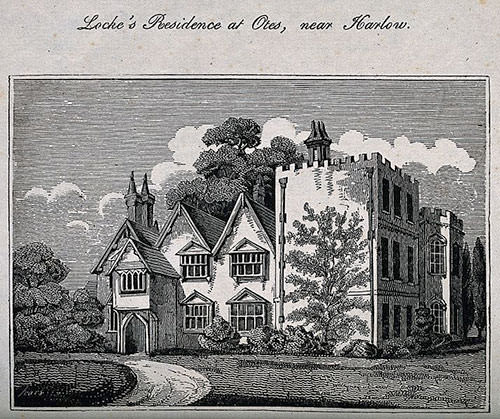
Lady Masham invited Locke to live in her household in Essex in 1691. He lived there till the end of his life. John Locke died on October 28, 1704 while Damaris Masham was reading him the Psalms. He suffered from health problems for most of his adult life and died at the age of 72. Locke never married nor had children. Much of his will was devoted to gifts, legacies and arrangements for Lady Masham and her son. Locke was buried in the churchyard of the village of High Laver, in Essex.
#8 JOHN LOCKE IS REGARDED AS THE FATHER OF LIBERALISM
John Locke is regarded by many as the founder of empiricism, an influential philosophy which states that all knowledge is based on experience derived from the senses. He famously postulated that, at birth, the mind was a tabula rasa, a Latin phrase meaning “blank slate”. Thus it didn’t have any innate ideas. John Locke is also considered the Father of Liberalism, a political philosophy or world-view founded on ideas of liberty and equality. He developed the then radical notion that government acquires consent from the governed and therefore authority is derived from the people rather than from above. Locke’s political views were influential in 18th-century America and many regard them as the philosophical basis of the American Declaration of Independence. Most scholars trace the phrase “life, liberty, and the pursuit of happiness” in the Declaration to Locke’s everyone has a natural right to defend his “Life, health, Liberty, or Possessions”
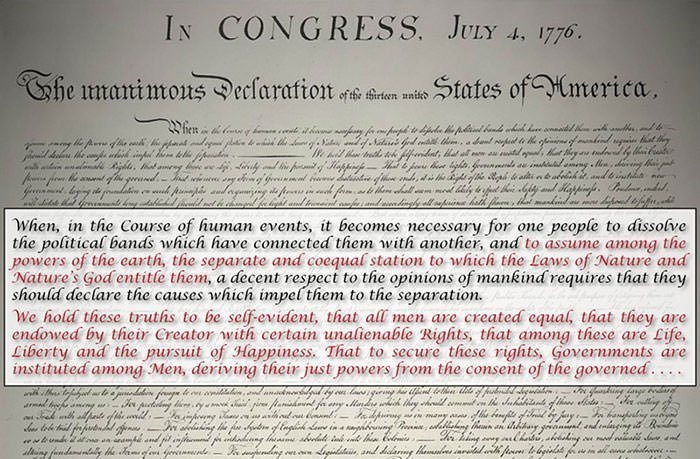
#9 HE IS REGARDED AS THE FIRST PHILOSOPHER OF THE AGE OF ENLIGHTENMENT
Age of Enlightenment was an intellectual and philosophical movement which dominated the world of ideas in Europe during the 18th century. John Locke is considered the first philosopher of the Age of Enlightenment. The writings of Locke had a great appeal to those who wanted to establish more representative forms of government. They are said to have played a role in the American Revolution and to a lesser extent, in the French Revolution. Also, some of the best known later philosophers, such as Voltaire, Jean-Jacques Rousseau, David Hume and Immanuel Kant, built their philosophies on the foundation that Locke had laid out. Many of the present philosophical ideas regarding individualism, liberty, tolerance etc. originated, or were eloquently established, in the writings of John Locke.
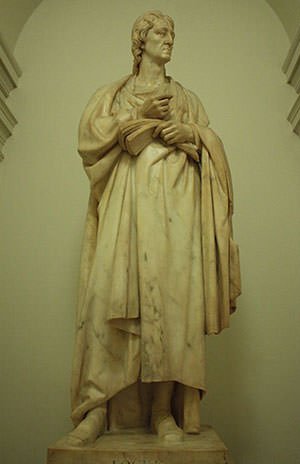
#10 HE IS ACCUSED OF HYPOCRISY DUE TO THE CONSTITUTIONS OF CAROLINA
In 1669, while he was a secretary of Lord Ashley, Locke was involved in drafting the Fundamental Constitutions of Carolina, then a British colony in America. It is widely accepted that Locke had a major role in the making of the Constitutions. The level of religious tolerance portrayed in the Constitutions was acclaimed by famous French philosopher Voltaire. There were certain safeguards for groups seeking refuge for religious reasons; and religious dissenters to Christianity, like the Jews, were given right to worship. However, the Constitutions of Carolina are far short than the levels of tolerance advocated by Locke in his writings. Article 110 of the Constitutions stated that “Every freeman of Carolina shall have absolute power and authority over his negro slaves.” Also, statements on unenclosed property may be seen to justify the displacement of the Native Americans. Besides this, Locke was also a major investor in the English slave-trade through the Royal African Company. Thus, many accuse John Locke of hypocrisy and racism or of caring only for the liberty of English capitalists.

